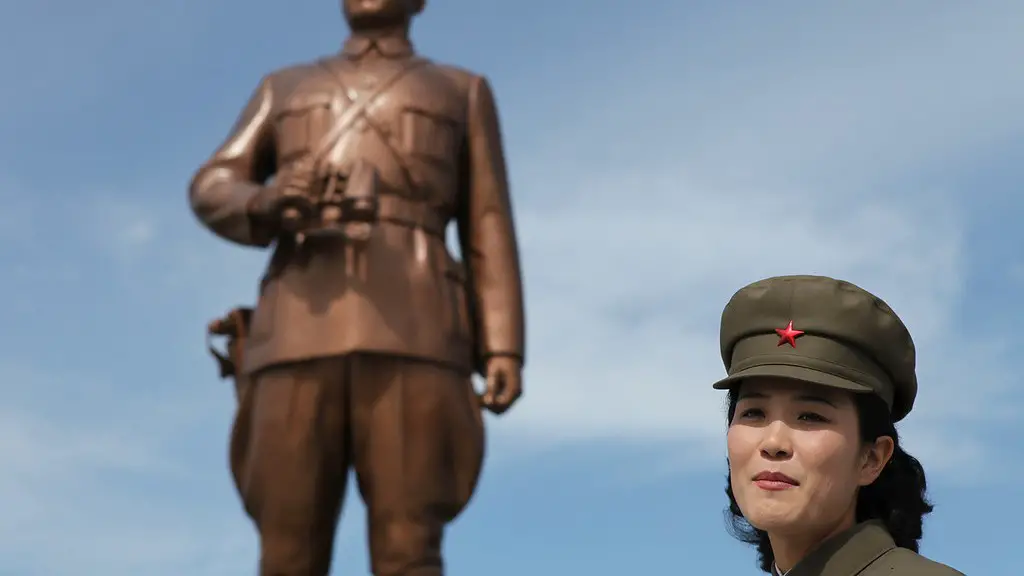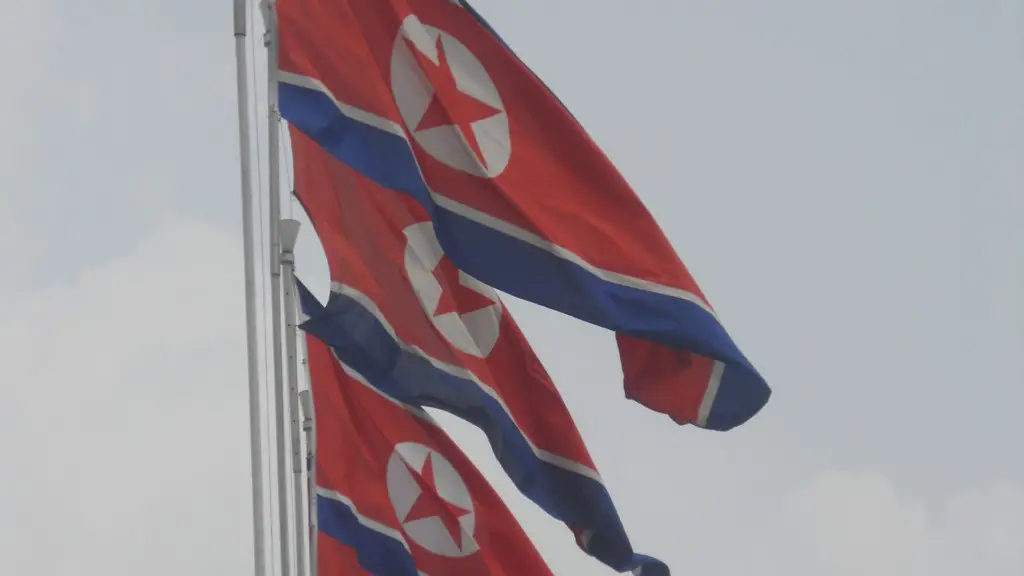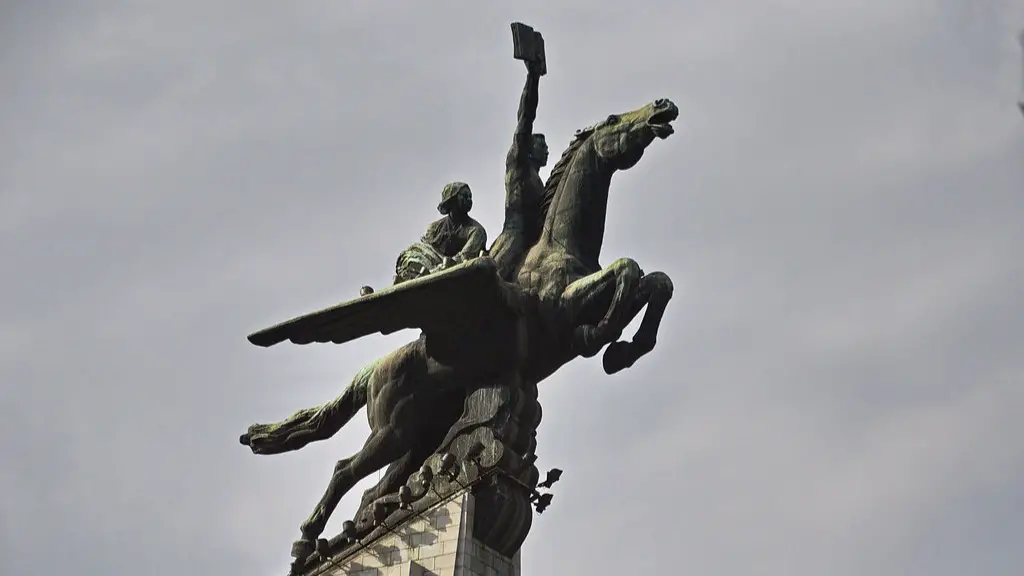Introduction
North Korea has been a secretive, authoritarian state since its formation in 1948. At its head is the enigmatic Kim Jong-un. Since ascending to power in 2011, he has become one of the world’s most talked-about figures, and the ruler of the Hermit Kingdom with absolute power. But who is the Emperor of North Korea, and how did he come to power? This article looks at the life of Kim Jong-un, and the culture and politics of North Korea which he controls.
Early Life and Family
Kim Jong-un was born in Pyongyang, the capital city of North Korea, in January 1984. His parents are former North Korean leader Kim Jong-il and his consort Ko Yong-hui, who was an opera singer by profession. Jong-un is the youngest of his father’s three sons, with two elder brothers, who were both considered too sickly to be suitable successors to the leadership.
Growing up, Jong-un may have attended the private lieutenants’ college of the Korean People’s Army (KPA), according to reports from South Korean media. Very little is known about his education beyond this, though he is rumored to have studied at a private school in Switzerland, using the pseudonym ‘Pak Un’.
Politics, Culture and Propaganda
Kim Jong-un’s leadership of North Korea has been characterized by a continuation of his father’s policy of aggressive foreign policy and traditional authoritarianism at home. Since coming to power, Jong-un has continued to lead North Korea in its long-running confrontation with the United States and the rest of the international community, particularly through its nuclear ambitions.
Domestically, Jong-un has continued his family’s efforts to cement the cult of personality around himself and his father. He has put in place a vast and unaccountable system of patronage and cronyism, while continuing the country’s isolationist policies. Media networks exist to further the nation’s version of events, extolling the virtues his rule and celebrating key events.
Succession of Power
When Kim Jong-un succeeded to power in 2011, it marked a dramatic change from his father’s rule. He was only 27 at the time, the youngest leader ever of North Korea, and the first of the Kim dynasty to be born after the nation’s founding. In addition to his youth and lack of experience, his succession was clouded by mystery, as neither his official biography nor his actual date of birth were confirmed by the state.
Jong-un was declared Supreme Leader and Marshal of the Korean People’s Army at his father’s funeral in December 2011. He officially assumed command in April 2012, and for the first few years of his tenure, he was seen mostly as a figurehead, though he gradually began to assert his authority and consolidate power over the government.
Young Leader’s Strategy
Kim Jong-un has in many ways continued the policy and governance strategies of his father and grandfather. However, he is also regarded as being more open than his predecessors, engaging in diplomacy with foreign nations, and engaging in greater publically visible activities than his predecessors. Undoubtedly aware of his own youth, he has surrounded himself with older, more experienced advisors, most notably his uncle, Jang Song-thaek.
The ‘young leader strategy’of Kim Jong-un appears to be the combination of his own personal charisma, with a puritanical dedication to the continuation of his family’s legacy. His rule has seen some economic relaxation and a loosening of the traditional iron-fisted approach to dissent, though liberties remain severely restricted.
International Negotiations
Kim Jong-un has been an active participant in international diplomacy, with a focus on relationships with his two closest neighbors – South Korea and China. In 2018, he held a historic meeting with South Korean president Moon Jae-in in Panmunjom, and the two have since maintained a high-level of communication and cooperation.
Meanwhile, Kim has also had a long-standing relationship with Beijing. In October 2018, the Chinese president Xi Jinping reportedly made the first visit to North Korea by a Chinese leader in 14 years. There is speculation that the two leaders are attempting to develop a united strategy to frustrate the US and its efforts to enforce sanctions against North Korea.
Getting In the Way
Recent years have seen Kim Jong-un becoming an increasingly visible presence on the international stage. His presence at the summit with US President Donald Trump in Singapore was widely reported, though the meeting ultimately failed to result in an agreement on denuclearization.
The Emperor of North Korea has demonstrated a capacity for shrewd diplomatic maneuvering and brinkmanship, and a strategic ruthlessness which has kept the US and much of the international community at bay. His presence and personality certainly complicates matters, and despite criticism, he is well-positioned to be the leader of North Korea for many years to come.
Military Expertise & Economic Risks
The military presence and influence of North Korea under Kim Jong-un has been considerable, with new missiles and nuclear weapons testing taking place. As the leader of the Democratic People’s Republic of Korea (DPRK), Kim holds ultimate responsibility for the nuclear arms build-up and its impact on regional stability. His expertise in military strategy has been evidenced through developments in the country’s security forces, with a strong emphasis on loyalty to the leader.
The economic risks associated with authoritarian rule of the DPRK are also of significant concern. Kim Jong-un has referred to his “lean economic policy” as a fundamental part of his strategy to increase economic growth and improve living standards, while allowing the country to pursue its defence policies free from major international intervention. However, sanctions have crippled the nation’s economy and the international community remains unconvinced by the young ruler’s reform strategies.
Reception by Foreign Leaders & Human Rights Struggles
Despite the rhetoric of North Korean foreign policy, Kim Jong-un has received a surprisingly warm reception from foreign leaders. The former US Secretary of State John Kerry described Kim Jong-un as “smart and prudent” following a high-level visit to Pyongyang in 2014. The former British Prime Minister David Cameron also praised him in person for leading the country through “a difficult and evolving transition”.
The younger Kim has made marginal progress in improving conditions for his citizens, particularly with respect to freedom of speech, but it falls far short of the desired international standard. The country continues to suffer from economic depression, Food and Medicine shortages, and oppressive social control. Kim’s inability to bring about meaningful improvements in the country’s economic, social, and political conditions has rendered the DPRK increasingly unable to compete in the modern global environment.
Conclusion
In summary, Kim Jong-un is the current absolute and secret ruler of North Korea. He has consolidated his position of power through a cult of personality, and has complimented this with strong military tactics and foreign diplomatic relations. His leadership style has been marked by a continuation of the authoritarian and harsh style of his predecessors, and his record on human rights remains poor. Nevertheless, his presence on the international stage continues to get in the way of any real progress on denuclearization and Korean unification.


